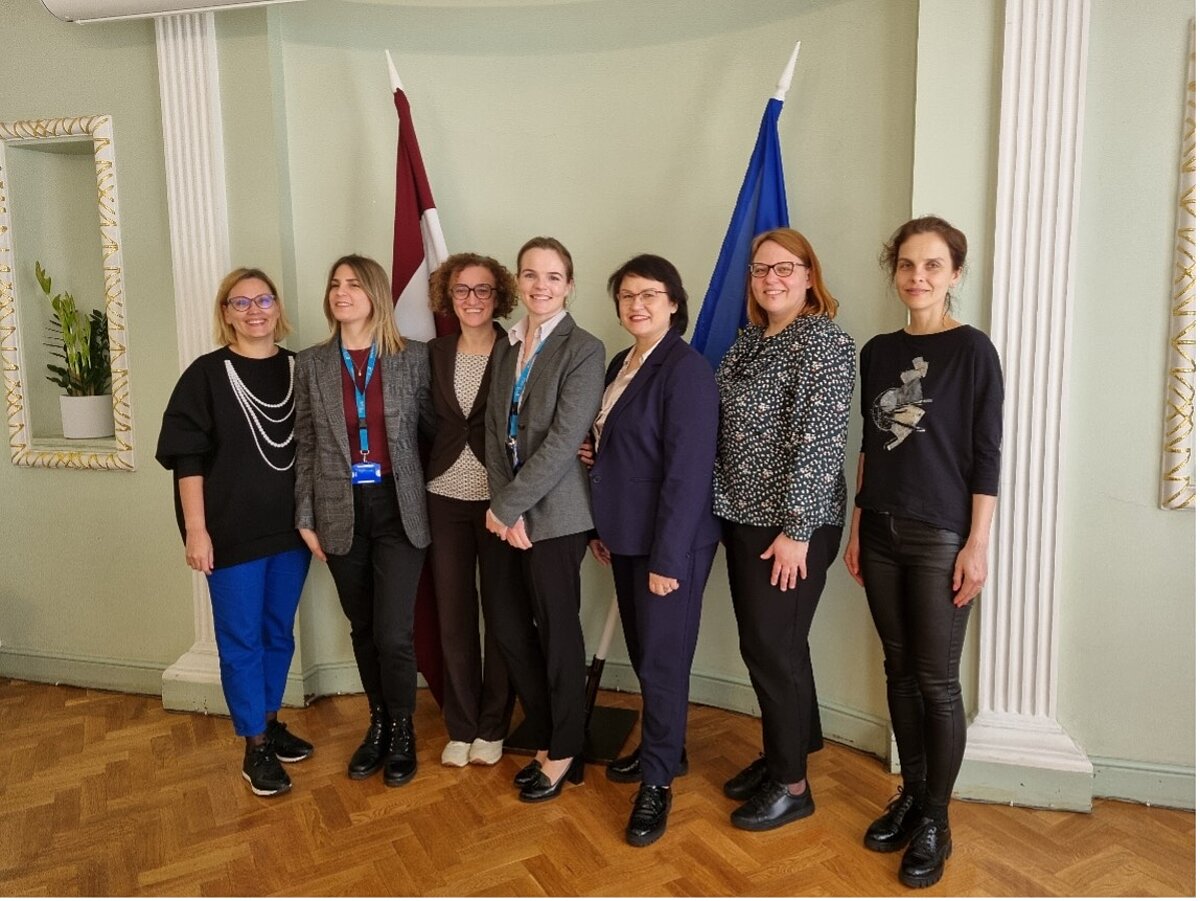
The leading researchers of the State Research Program "Education" (SRP "Education") project "Elaboration of evidence-based solutions for effective professional competence development of adults and assessment of the transfer of its results into practice in Latvia" (project No. VPP-IZM-Izglītība-2023/4-0001), Dr.paed. Sanita Baranova (University of Latvia), Dr.sc.administr. Inese Lūsēna-Ezera (RTU Liepaja Academy), Dr.sc.administr. Una Libkovska (Ventspils University of Applied Sciences), Dr.sc.administr. Liene Resele (Ventspils University of Applied Sciences), participated in a seminar organized by the Ministry of Education and Science in collaboration with the European Commission's Joint Research Centre Learning Lab on April 8th and 9th, 2024, on the use of counterfactual impact assessment for more effective policy planning and evaluation (Tailored Training on Counterfactual Impact Evaluation of education policies).
The essence of Learning Lab's activities is to promote a culture of education policy evaluation in the European Union, aimed at strengthening the ability of member states to develop evidence-based policies and assess the results of implemented education policies. Learning Lab supports policymakers and evaluators with knowledge, tools, methods, and resources for effective evaluation of education policy impact, taking into account the needs of national, regional, and local communities, while also advocating for an evidence-based approach to education policy development and implementation.
The seminar was attended by policy planners, implementers, and data analysts from various government agencies, as well as researchers from universities. The aim of the seminar was to enhance participants' understanding of various methods for evaluating the effectiveness and impact of education policies, as well as the use of research-based evidence to ensure investment in quality education.
Research methods were described in relation to specific cases, including examples of studies on issues within the Latvian education system. The enhanced understanding of research methodology among seminar participants was further strengthened through discussions and group work on the evaluation of adult learning impact in Latvia.
At the conclusion of the seminar, professor Inese Lūsēna-Ezera from RTU Liepaja Academy acknowledged that, "although the primary audience for the training was education policy planners, researchers also gained valuable insights into methodologically diverse approaches to using counterfactual impact assessment for more effective education policy planning and evaluation. The seminar emphasized the importance of both data quality and indicators in assessing policy impact, particularly highlighting the significance of defining indicators at the initial stage - during the process of educational reform planning. Furthermore, considerable attention was paid to concepts such as causality and correlation within the context of evaluating policy effectiveness.
The experience gained from the seminar on approaches and methods for evaluating the effectiveness and impact of education policies will be discussed within the team of the SRP "Education" project "Elaboration of evidence-based solutions for effective professional competence development of adults and assessment of the transfer of its results into practice in Latvia". The methodology examples discussed in researcher groups will be valuable for in-depth analysis when planning the empirical research phase of the SRP "Education" project.

 Academic Centre
Academic Centre